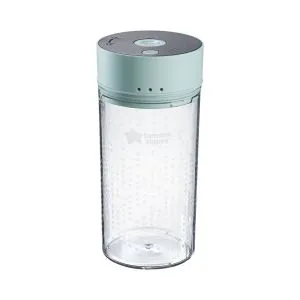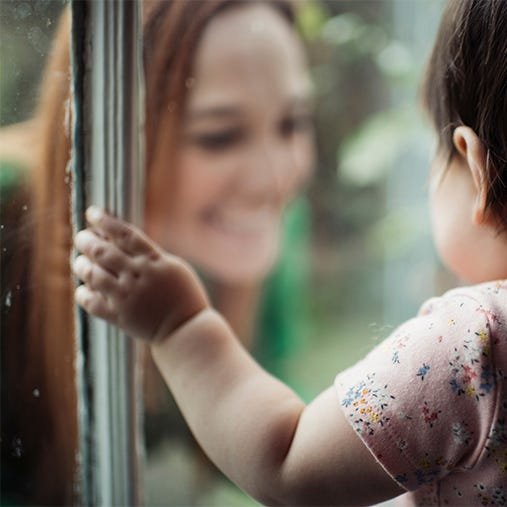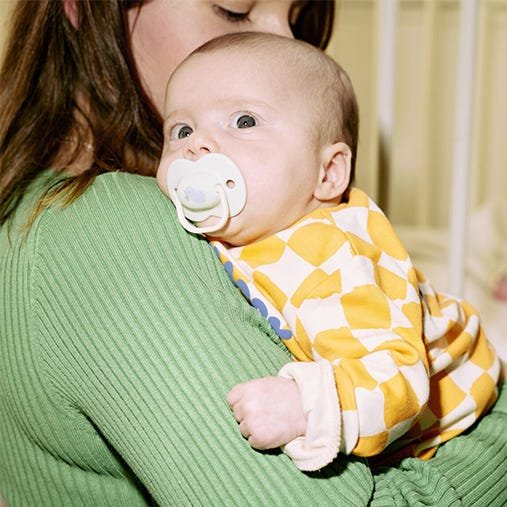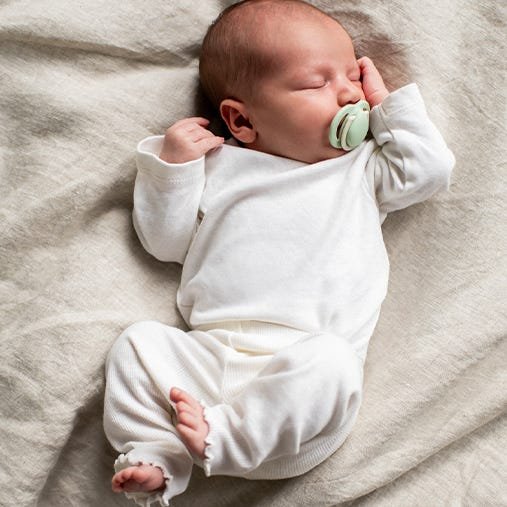How to get a newborn into a routine
Every baby is different, but the key elements of a good newborn routine include times for sleeping, feeding, nappy changing, playing, and getting out and about.
Feeds
Whether you're breastfeeding, bottle feeding, or combination feeding, it's a good idea to get into a routine with your feeds. As well as timing, this can include setting the scene, making sure the environment around you is calm, and ensuring sure that you've got everything you need (like muslin cloths, bibs, and a drink for yourself) close to hand.
When it comes to timing, lots of parents find it easier to feed their baby on demand, but it can help to note down when your baby feeds, and for how long, each day. That way, you can start to notice patterns and begin to understand your newborn more every day.
Play
You may be thinking, how on earth can I play with this tiny baby!? But there are ways that you can entertain and stimulate your baby during the early days.
Newborns don't really need toys, but you can try a few minutes of tummy time, giving them different things to look at and feel, holding them close and swaying to your favourite songs, and singing softly to them.
Getting out and about
Going out for a wander in the fresh air and having the opportunity to meet other mums and babies is really important for both you and your little one.
Changetime
Newborn babies may need changing as often as 10 to 12 times a day. You should change your little one's nappy as soon as you can after they've peed or pooed to keep them comfortable and to minimise the chance of them getting a nappy rash.
Sleep
Newborn babies sleep a lot (from approximately eight to 18 hours a day), but it doesn't always feel that way. Their sleep will be in short, random bursts at first, and some parents find that their little one sleeps for long stretches in the day, and wake up more during the night.
Getting into the habit of doing the same bedtime ritual at the same time each night can help your baby form a positive association with sleep. This can include...
- giving them a bath and massage
- reading them a short story or singing them a lullaby
- giving them plenty of cuddles and a goodnight kiss
It can also help to begin teaching them the difference between night and day early on. You can do this by keeping your house bright and bustling when they're napping as you get on with what you need to do during the day, but dim, calm and quiet at night as you're winding down.
Setting this definition helps your mini-me understand that nighttime when it's dark and quiet is the time for sleep, and daytime when it's bright and lively is for socialising and playing. With a bit of practice, you'll gradually be able to make the most of your days and catch up on the sleep you all need at nighttime.
Remember to follow safe sleep guidance. Make sure your baby is sleeping in the same room as you - whether it's day or night-time - for the first six months of their life.









